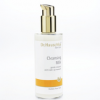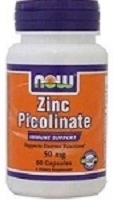Zinc picolinate
₪60.00
2 in stock
Description
Zinc picolinate
Zinc is one of the trace minerals that your body requires to maintain optimal health. Zinc picolinate is a type of zinc supplement that supports absorption and as a primary component to support metabolism in your body.Zinc picolinate is an acid form of zinc that your human body can more easily absorb than other forms of zinc.Picolinic acid is made from tryptophan, an amino acid. Picolinic acid is made in the liver, and then brought to the pancreas, and during digestion, it is part of the secretions mixed with the ingested food to facilitate the absorption of the minerals mentioned. This is in comparison to zinc citrate and zinc gluconate, both of which are known to be useful and chelated forms of zinc. The three were tested against one another for human consumption and zinc absorption was improved when complexed with picolinic acid.Absorption of zinc in your body is a complex process that involves the zinc passing through your intestinal membranes, into your blood stream and into your individual cells.
Functions of Zinc:
Zinc picolinate supplementation can help to control acne.Zinc is considered to act directly on the redness and swelling caused by acne by acting on the microbial inflammatory equilibrium. When used in combination with an antibiotic, zinc can facilitate the absorption of the antibiotic.
It also functions as a general immune booster.Zinc mediates the functions of multiple points within the immune system, such as the lymphocytes and macrophages, by its countless roles in cellular activities such as DNA replication, RNA transcription, and cell activation. Zinc picolinate can also help your body to rid itself of many types of toxins.
Zinc also has a major impact on hormonal balance, so for this reason, even a small zinc deficiency can result in an increased risk for infertility or diabetes.Zinc is needed to balance most hormones, including insulin, the main hormone involved in the regulation of blood sugar and as a diabetes natural treatment. Zinc benefits blood sugar levels because it binds to insulin so insulin is adequately stored in the pancreas and released when glucose enters the bloodstream.It also allows for proper utilization of digestive enzymes that are necessary for insulin to bind to cells so glucose is used as fuel for the body, instead of stored as fat.
During pregnancy, childhood, and adolescence, zinc has been found to support normal growth and development. It has also been found to enable proper operation of the sense of taste and smell.
Zinc benefits hormonal health and fertility because it plays an important role in hormone production, including increasing testosterone naturally, which has very widespread roles in both men and women. Zinc also impacts female sex hormones and is even involved in the creation and release of eggs within and from the ovaries.
Zinc is needed for the production of estrogen and progesterone in women, which both support reproductive health. Either too high or too low levels of estrogens can cause problems with menstruation, mood swings, early menopause, infertility and possibly even increase the risk for certain cancers.
Zinc plays an important role in fertility, especially modulating serum testosterone levels in men. Dietary zinc restriction and deficiency in normal young men is associated with a significant decrease in serum testosterone concentrations, which can negatively impact fertility and lower libido. What does zinc do for you sexually? It can potentially improve low sex drive by increasing testosterone levels.
In one study by the Department of Internal Medicine at Wayne University, after 20 weeks of zinc restriction, giving patients zinc supplementation effectively increased serum testosterone in the majority of men.
Zinc also impacts women’s fertility since adequate levels of zinc are needed during the growth process of the female’s eggs, otherwise eggs cannot properly mature and ovulation suffer.
Zinc picolinate can help prevent and treat conditions such as prostate enlargement, liver disease and cirrhosis; and zinc, combined with other oxidants including vitamins C, E and beta-carotene, may be helpful in slowing the progression of age-related macular degeneration.
Zinc deficiency is related to chronic digestive problems and diarrheal diseases, which has been shown in several studies. Researchers have found that zinc supplementation can be effective in both prophylaxis and as an acute diarrhea remedy.
Aids in Nutrient Absorption and Digestion
Zinc affects protein synthesis and is required by the body to use amino acids from foods. It’s also involved in the breakdown of carbohydrates from foods, which are one of the main sources of energy for the body. For this reason, deficiency in zinc can cause low energy levels and contribute to adrenal or chronic fatigue, whereas consuming enough zinc benefits ongoing energy and a healthy metabolism.
Helps with Muscle Growth and Repair
Zinc plays a crucial role in cell division and cell growth, so zinc benefits muscle repair and growth by making it possible for the body to heal itself and maintain strength in the muscular and skeletal systems.
Zinc also helps with the release of testosterone, growth hormone and insulin-like growth factor-1 (IGF-1), all of which build muscle mass and a healthy metabolism.
Zinc benefits muscle mass because it helps increase the amount of testosterone the body is able to produce following exercise — especially weight-training and high intensity interval training — because it enhances the conversion rate of androstenedione to testosterone.
Zinc picolinate can increase the levels of BDNF in the body. BDNF levels have also been linked to good brain development leading to better memory and learning.Supplementing with zinc improved the mood of subjects in the study.
Side Effects:
Zinc picolinate does not have any known side effects associated with taking a normal dose of this supplement. According to the Dietary Guidelines for Americans, 2015-2020, the recommended intake of zinc for adults is 8 mg per day for women and 11 mg per day for men. Children need less zinc, with the exception of young women between the ages of 14 to 18, who need 9 mg/day.Pregnant females, age 19 and over: 11 milligrams per day (mg/day)
Lactating females, age 19 and over: 12 milligrams per day (mg/day)
Red meat and poultry provide the majority of zinc in an average American diet. Zinc may also be obtained from beans, nuts, whole grains, and dairy products.
Additional information
| Weight | 0.054 kg |
|---|







